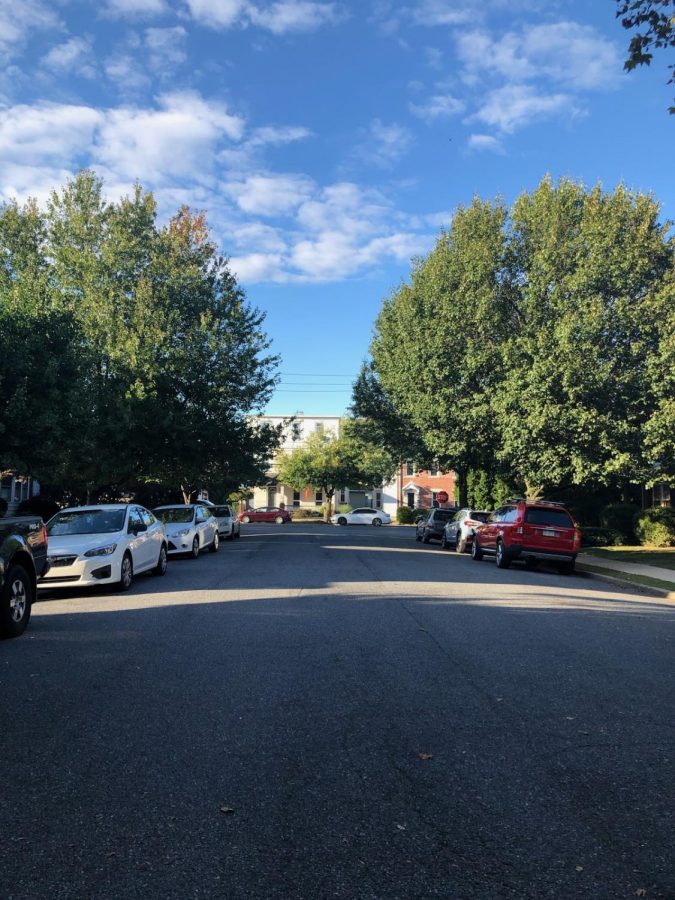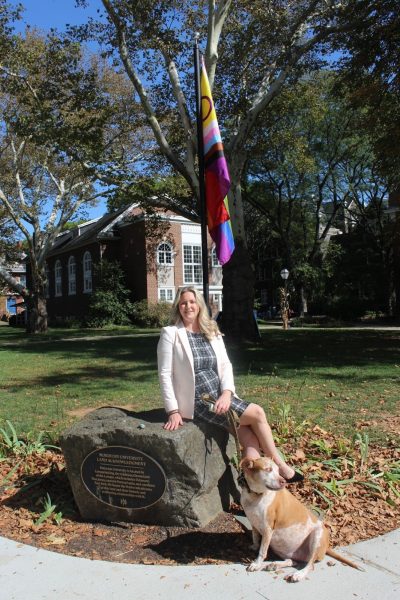Community Vs. Commuters: A Parking Dilemma
Moravian College commuters make up one-third of the student population, but when it comes to parking their cars, they are restricted to a single parking lot that is subjected to flooding: Lot X.
The lot has 209 parking spaces. That’s not enough to accommodate all commuter students, causing them to seek out parking elsewhere. In many cases, that means nearby neighborhood streets.
Don Midway, a Bethlehem resident who has lived a block from North campus on Lorain Avenue for three decades, has been dealing with the consequences of Moravian’s parking rules and regulations for years. His main concern is that when he leaves his house on Monday, Wednesday, or Friday mornings and comes back a few hours later, he can find no parking space anywhere on the block. In fact, many neighbors are wary of leaving their houses to avoid losing their parking space, Midway said.
Not Midway.
“I am not going to be housebound because of this issue,” he said.
The 2019-2020 Parking Rules and Regulations guidelines issued by Moravian College state, “All vehicles parked on Moravian College property or within a half-mile of College property must be registered. Registering a vehicle with Campus Police is required to obtain a Faculty, Staff or Commuter parking permit. Resident student parking permits are issued through an application process. Any unregistered vehicle operated by a member of the Moravian College community, which is parked in these designated areas, shall constitute a violation of College policy.”
Commuters pay $100 to register a vehicle to park in Lot X. A parking ticket this year costs $75.
Students have made many complaints about the policy, largely because Lot X is often full, forcing them to look for parking in neighborhoods.
Senior commuter Kayla Contreiras said, “I’m not paying $100 for a permit to park [in Lot X], especially if I’m not guaranteed a spot.”
Even when there is space in Lot X, some students don’t want to trek that far to the center of campus.
Phil Salib, a senior who is majoring in marketing and management and has most of his classes in Comenius Hall, is frustrated by the fact the he only has the option to park in Lot X.
“It is not fair how commuters are represented in terms of parking,” he said. “The rules and regulations are more skewed to accommodate residential students and faculty.”
Some students complain that they aren’t sure where the half-mile radius ends, as streets where parking is banned aren’t marked. As a consequence, students may unknowingly park illegally on nearby neighborhood streets.
Midway understands that living close to campus comes at a cost, that, for example, parking is scarce on days when Moravian sports teams, especially the football team, play at home. But, he and other neighbors don’t think Moravian students should be taking up parking spaces during the week. Residents should be able to park on their block, and, ideally, in front of their homes.
When Midway and other neighbors reached out to Campus Safety with their concerns, they were told that Campus Safety was understaffed and could not monitor the streets.
“I don’t know what the answer is,” said Midway. “But I don’t think the college is taking the time to figure it out.”
But that may be changing.
Campus Safety and the Bethlehem Police Department have recently started taking a harder line on enforcing parking rules. Bethlehem PD has been seen riding horses through campus parking lots checking for Moravian parking stickers. In a September 19th email sent to students and the greater Moravian community, Richard Blake, chief of the Moravian College Police Department, put illegal parkers on notice: “It has been 4 weeks since classes started,” he wrote. “It is time to start enforcement of the 2019-2020 Parking Rules and Regulations.”








Robert T. Brill • Oct 4, 2019 at 1:33 pm
So – it seems unclear as to how many actual spaces there are vs. # of commuters accepted at the college. Assuming the college is charging $100 to park but unable to ensure a spot for a substantive number of commuter students (I can see some excess of commuters to spaces given the ebb and flow of use), it seems blatantly unethical to then generate more revenue from the commuters for using public space (especially if many of their parents pay taxes in Bethlehem). It would seem like building ample parking (going upwards perhaps) for commuters should be therefor an ethical priority.